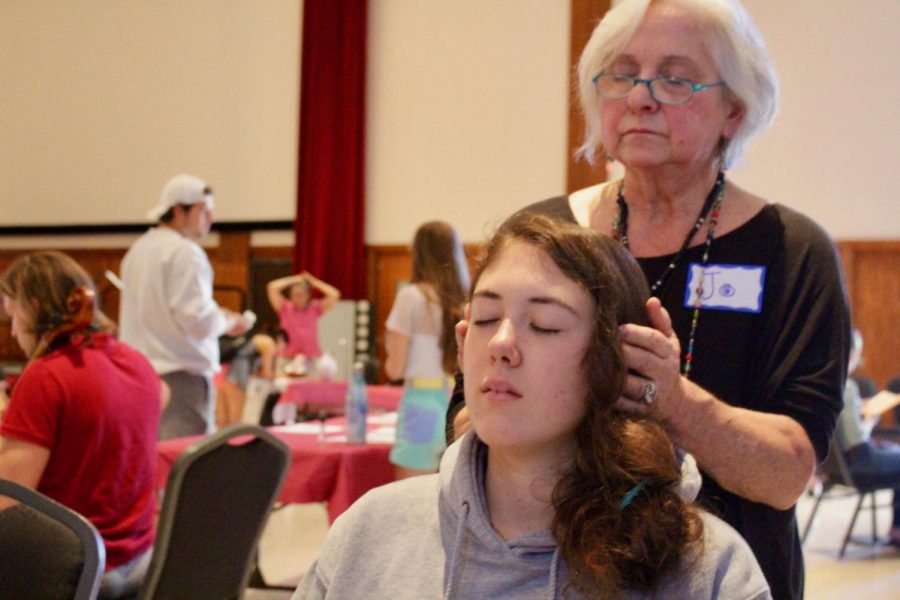On Wednesday, 600 students learned about the importance of healthy sleep at the University of Massachusetts’ fourth annual sleep fair, titled “Sleepless at UMass?”
The event was held to spread awareness about different ways to get better sleep, relax, and the importance of getting enough sleep for college students who often do not have healthy sleep schedules.
“College kids have trouble getting enough sleep because going to college opens up the floodgates of freedom,” said sleep lab manager Jason Metcalfe, adding “sleep is all about getting into a rhythm”
The event featured a combination of UMass on campus resources for health and wellbeing, local practitioners, vendors seeking to gain exposure and sleep research facilities there to teach students about the proven importance of sleep. Popular activities that had waitlists of participants throughout the event were free massages, meditation circles, acupuncture and Pioneer Valley Reiki.
Freshman communications disorders major Courtney Jacobson was drawn to the event in hopes of a free massage and ended up getting a lot out of the event She tried acupuncture and Reiki for the first time and got a free yoga mat.
“This has been my favorite fair I’ve been to so far,” said Jacobson. “It’s so relaxing and I probably would never have tried these things ever in my life if it wasn’t for this event,” she added.
Sophomore nutrition major Danny Flaherty, presenting at the Student Wellbeing Advisory Board table, explained how college students are overworked and so focused on doing homework, maintaining relationships, getting jobs and internships that they rarely prioritize sleep.
UMass alumni and graduate student Rebecca Piscia said, “students spend most of their time getting work done and this event is a good opportunity to slow down and take a break.”
Sleep expert and research scientist Bethaney Jones works for a sleep lab that focuses on sleep’s impact on cognition, memory and the overall importance of healthy sleep. She emphasized the importance of this event because college students are especially prone to having late nights, stemming from both biology and their busy schedules with early classes.
Jones said, “It’s ironic that students often don’t get enough sleep because skills like memory and cognition are essential for learning.”
Michelle Letender and Jill Isabelle, organizers of the event, said that throughout four years of the event being held, the fair has gained more momentum from more proactive and diverse advertising. Isabelle began organizing an event where local vendors and practitioners that promote better sleep and wellbeing could come together and raise awareness about the importance of sleep. The planning process took many connections and co-sponsorship from Campus Recreation and the Center for Health Promotion.
“I hope this event plants a seed that there are resources out there and students can find answers to their questions about wellbeing event if it takes a little bit of digging,” Isabelle said.
Leigh Appelstein can be reached at [email protected] and on Twitter @Lappelstein




















